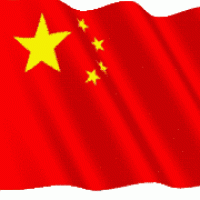| 图片: | |
|---|---|
| 名称: | |
| 描述: | |
- 宫颈涂片1
-
本帖最后由 于 2007-05-04 21:38:00 编辑
I may not be correct or not have enough experience in this, but the photos uploaded above are not diagnostic for LSIL to me. The associated inflammatory change further dissuades me from making a definite diagnosis of LSIL or mild dysplasia. Perhaps I am too conservative.
Dr. Yuexin's dillema is not uncommon in our daily practice. Allow me to share how I would approach it. ASC-H and HSIL (CIN-2 or moderate dysplasia) and atrophic cervicitis are diagnoses with overlapping cytologic features. If no LSIL is seen in the background, the patient's age and history can help me decide on difficult cases. For example, atrophic cervicitis are common among post-menopausal women and women who have received radiation therapy to the pelvis. Horminal effects during or immediately after a pregnancy often increase cytologic atypia, and I would be extra careful in diagnosing LSIL, ASC-H or HSIL-CIN-2 in these women. When I still have doubt, I would either recommend repeat cytologic exam in 3 months or high-risk HPV DNA test.
If the background contains cells clearly diagnostic of LSIL, the next question is how often do one finds cells suggestive of HSIL-CIN-2. If there are many such cells, they are diagnostic of HSIL-CIN-2 to me. However, if only rare or a few such cells are seen and one cannot be sure of the HSIL-CIN-2 diagnosis, I would give a comment stating that "rare cells suggestive of HSIL-CIN-2 (moderate dysplasia) are seen" and recommend colposcopic biopsy.
Surgical overtreatment (conization) for mild dysplasia is not uncommon. I have heard of lawsuits against pathologists and gynecologists filed by young women who were diagnosed of LSIL and received conization with resultant cervical incompetence, making them difficult to carry pregnancy to full-term. This is potentially an increasing problem, and we have to be aware of this ramification of our cytologic diagnosis.
abin译:也许我的观点不正确或者对此没有足够经验,但我认为上述图像不应诊断为LSIL。相关的炎性改变进一步使我不能下LSIL或轻度异型增生的明确诊断。也许我的看法太保守了。
月新医生的困惑并非少见。请允许我介绍自己的认识方式。ASC-H和HSIL (CIN-2或中度异型增生)和萎缩性宫颈炎在细胞学特征上有重叠。如果背景上没有见到LSIL,患者的年龄和病史可能会帮助我决定这些困难病例的诊断。例如,萎缩性宫颈炎常见于绝经后妇女和接受过盆腔放射治疗后。妊娠期间或妊娠初期的激素通常会增加细胞学上的不典型性,对这些妇女诊断为LSIL、ASC-H或HSIL-CIN2时我会格外小心。当我仍然有疑问时,我会建议3月内复查细胞学或检测高危型HPV-DNA。
如果背景包含明确诊断为LSIL的细胞,下一个问题就是,这些提示为HSIL-CIN2的细胞出现的频率(或数量)。如果这些细胞较多,我会诊断为HSIL-CIN-2。相反,如果这些细胞很少或者并不多见,不能确信HSIL-CIN-2的诊断,我会加上备注:“见到少数细胞提示为HSIL-CIN-2(中度异型增生)”,并建议阴道镜活检。
对轻度异型增生的过度手术治疗(锥形切除术)也不少见。我听说过年轻妇女因诊断为LSIL并接受锥形切除术导致宫颈功能不全而难以足月妊娠,引起对病理医生和妇产科医生的诉讼。这是一个潜在上升中的问题,我们必须了解这一细胞学诊断上的分岐。

聞道有先後,術業有專攻
-
本帖最后由 于 2007-05-04 21:54:00 编辑
| 以下是引用月新 在2006-10-14 23:04:00的发言: 想问一下HAY老师,如果有明显的挖空细胞,可疑为HPV感染时,合并有ASC-H,用不用再报ASC-H?因为已经明确它的病因是HPV。处理如何为好? |
1. "如果有明显的挖空细胞,可疑为HPV感染时,合并有ASC-H,用不用再报ASC-H?"
应报LSIL(TBS 2001)
处理如何为好? 3 - 6 个月复查,
2. "在活检时也遇到类似情况,患者有明显的HPV改变,又有轻-中度的不典型增生,这种情况如何报告为好?"
细胞学按TBS标准报HSIL
3. 如何处理是比较合适?
不同地区及不同人的处理会有差异,
here is Canadian guideline:
Treatment of cervical cancer depends on the stage of the disease, size of the tumour as well as the patient's age, overall condition and desire to have children. The earliest form of cervical cancer is carcinoma in situ (stage 0), a non-invasive cancer that can be treated by loop electrosurgical excision procedure (LEEP), conization (removing a cone-shaped piece of the cervix), cryotherapy, laser therapy or hysterectomy. In stage 1 cervical cancer, the tumour invades into the normal tissue but has not spread beyond the cervix itself. Treatment options for this stage include hysterectomy, conization, and internal or external radiation therapy. Cancers that extend beyond the cervix but are still limited to the pelvis (stage 2) may be treated with internal and external radiation combined, hysterectomy followed by radiation, or by radiation and chemotherapy. Treatment of cancers that have spread throughout the pelvis (stage 3) usually involve a combination of internal/external radiation therapy plus chemotherapy. In stage 4 disease, the cancer has spread to other parts of the body and treatment usually consists of radiation, chemotherapy or a combination of the two.
abin译:以下是加拿大处理指南:
宫颈癌的处理取决于疾病的分期、肿瘤大小和患者年龄、一般状况和生育要求。宫颈癌的最早期是原位癌(0期),为一种非浸润性癌,可行LEEP术、锥形切除术、冷冻疗法、激光疗法或子宫切除术。I期宫颈癌,肿瘤侵犯正常组织但没在扩展到宫颈下方。可选择子宫切除术、锥形切除术、阴道内或阴道外放疗。癌组织进展超出宫颈但仍局限于盆腔内为II期,可行阴道内和阴道外联合放疗、放疗后子宫切除术,或放疗加化疗。扩展到整个盆腔时为III期,处理通常包括阴道内/外放疗加放疗。IV期癌扩展到身体其他部位,其处理通常包括放疗、化疗或合并放化疗。
-
本帖最后由 于 2006-10-22 20:57:00 编辑
小荷:"第一副图一眼马上感觉是滴虫,可是却在左上角见到了霉菌.
第二\三副图感觉有问题,但是如果报LSIL感觉还是差了一点。
第四副图感觉是交界性的类湿疣病变.我晕啦



 "
"哈, 分析地不错!
没有滴虫,但有霉菌, 此例的目的是展现几个陷阱: LSIL? HPV? 霉菌? HSIL?
宫颈涂片1及2是同一病历, 答案是: NILM, Candida sp. present
Case 1: #1 霉菌
#2,3 inflammation
#4 像 LSIL, HPV, but N/C 比还小, 核周挖空不够, 此图的核周空圈是霉菌所zhi 的inflammation reactive change.
下面的图中#3可能会误诊为HSIL,

名称:图1
描述:图1

名称:图2
描述:图2




































